|
Genres, Themes, Actors, and Directors:
- Christianity
- Do-Gooders
- Historical Drama
- Luis Buñuel Films
- Mexico
- Priests and Ministers
- Prostitutes and Gigolos
Review:
Based on an 1895 novel by Benito Pérez Galdós — who also wrote the novel upon which Tristana (1970) was based — this Luis Buñuel film was winner of the International Prize at Cannes, and shows clear evidence of many of the director’s most pressing concerns and cinematic interests: religion, morality, hypocrisy — and the role played by doubt. As Bunuel himself said in an interview, “I think doubt is an extraordinary thing. It makes you grow.” In the same interview, he expressed fondness for Father Nazarin as a “really nice guy” who could really be anyone (except, he added drolly, a policeman). Indeed, Rabal’s performance is quite appealing, and we quickly grow to admire this man whose morals truly drive his actions:

Buñuel places Father Nazarin within an appropriately seedy and challenging milieu, one filled with garishly made-up prostitutes (are they covering illness?):
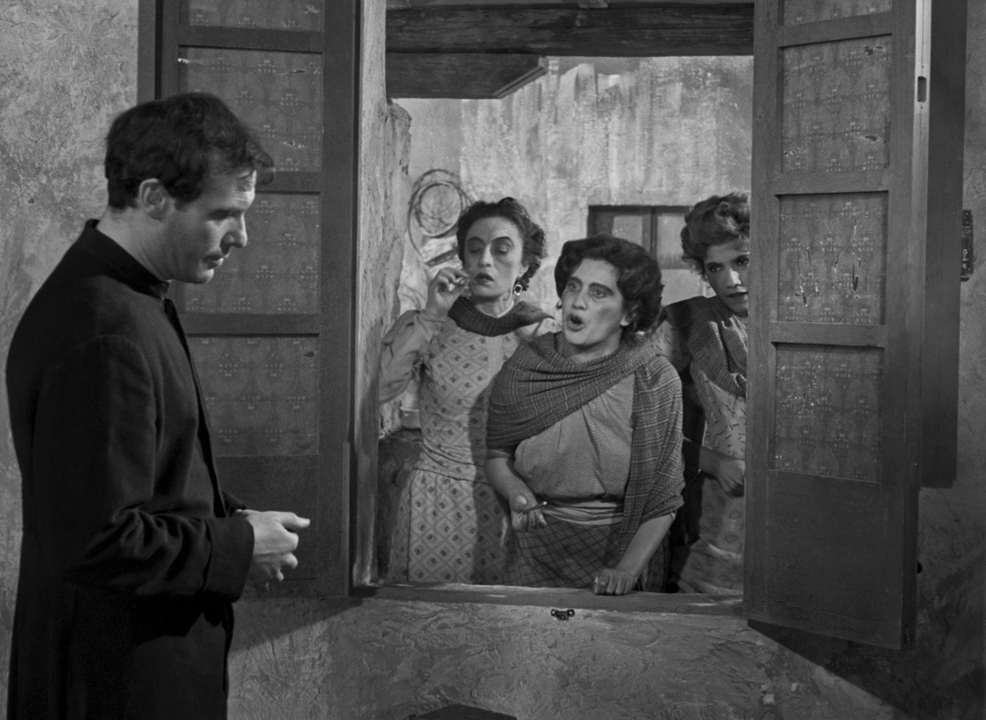
… and sickly citizens in need of care and alms. The primary narrative tension revolves around how Nazarin will respond when the two women he’s helped begin to follow him around as though he’s a modern-day Jesus:
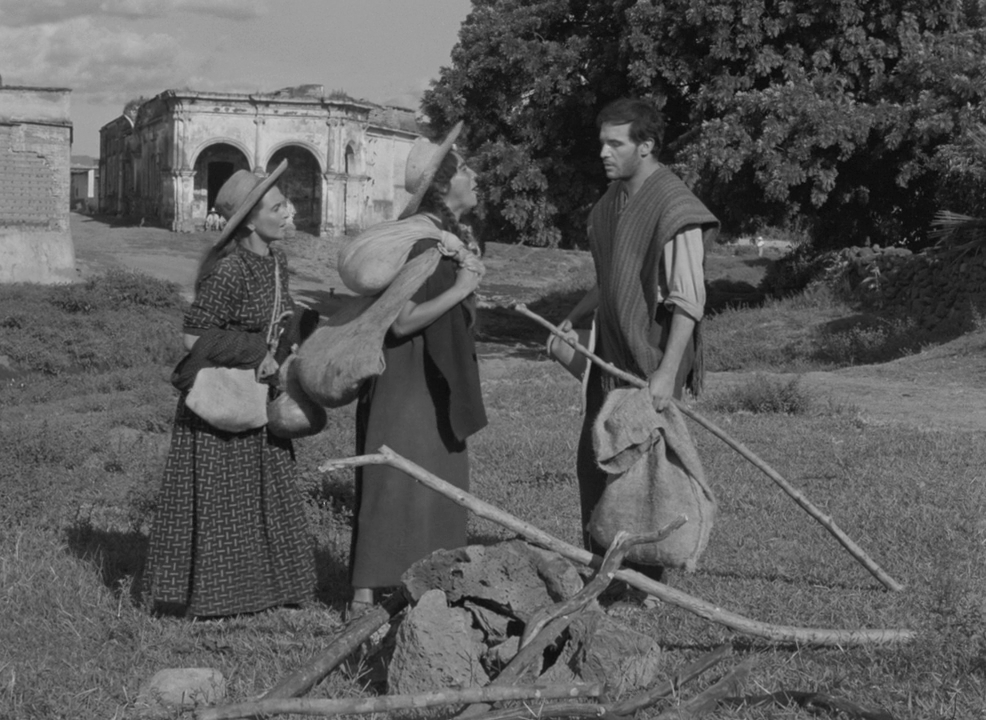
There are a couple of surrealistic touches sprinkled throughout, as well as the inclusion of a midget as a love interest:
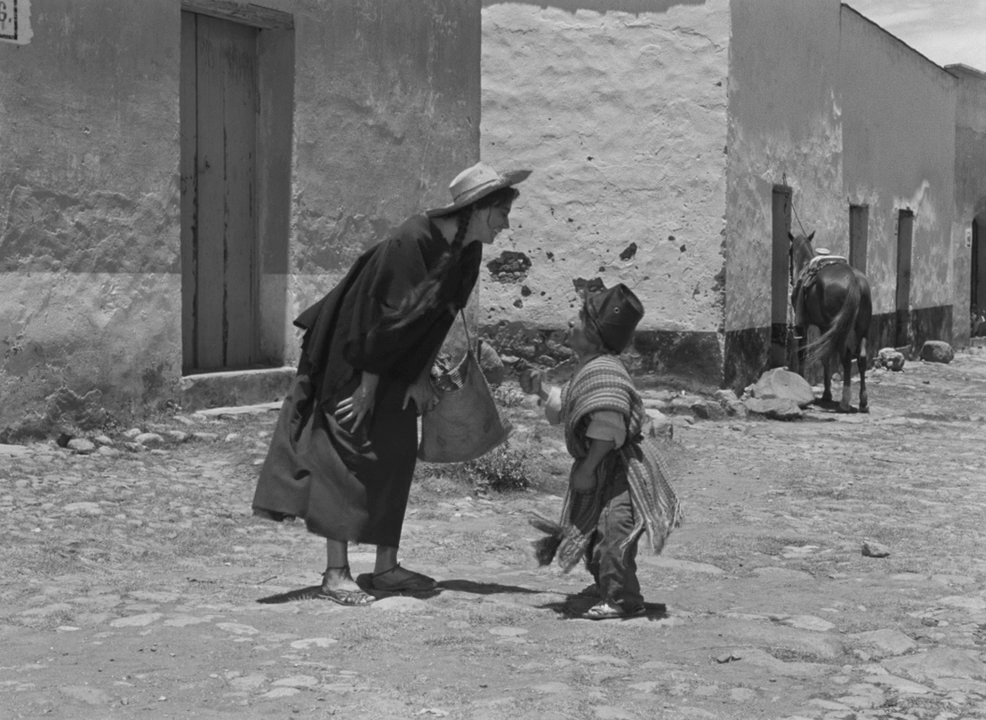
… which all add to the sense that one is very much watching a film by Buñuel. While this isn’t must-see, it’s worth a look.
Notable Performances, Qualities, and Moments:
- Francisco Rabal as Father Nazarin

- Gabriel Figueroa’s cinematography

- Several effectively surreal moments
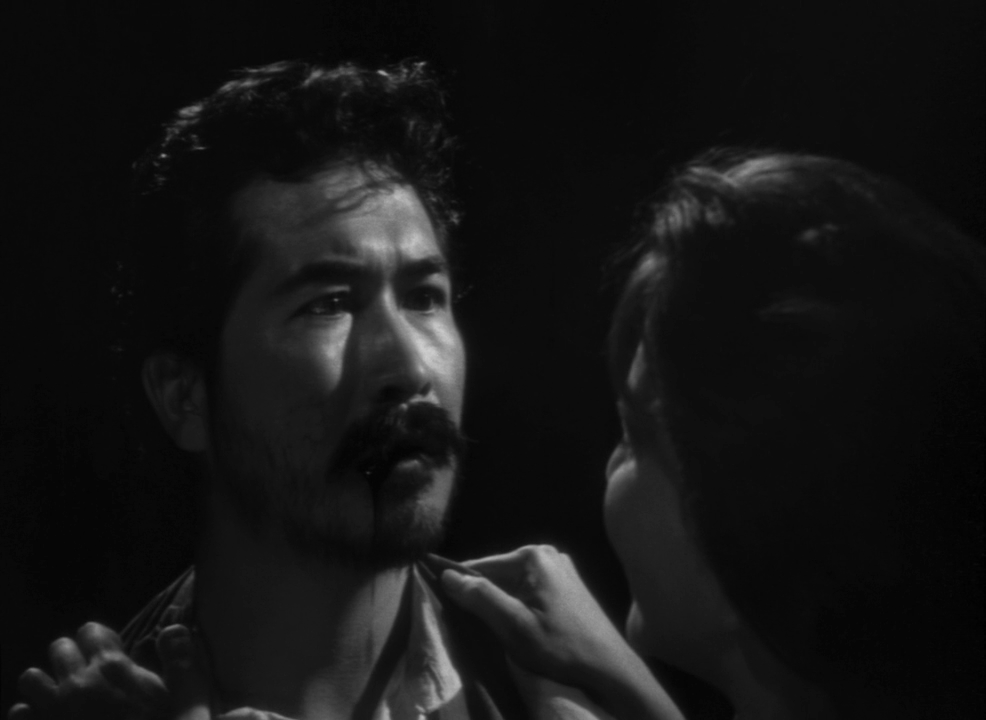
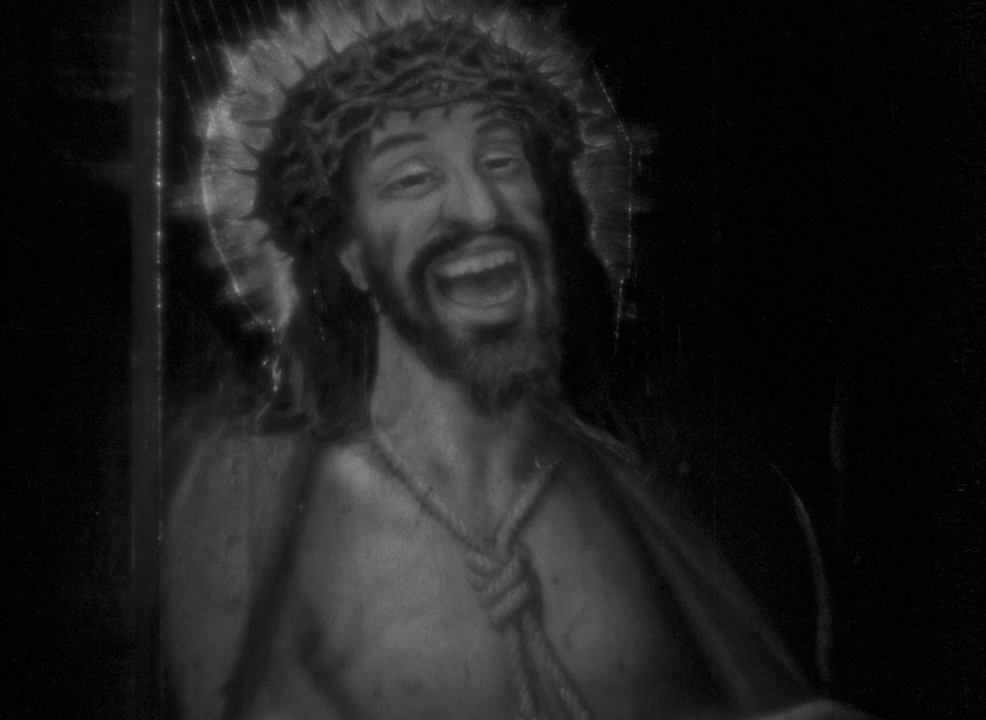
Must See?
No, but it’s well worth a look, and of course must-see for Buñuel fans.
Links:
|
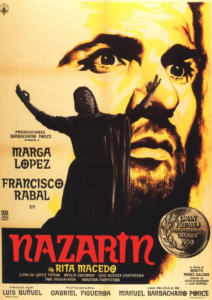








One thought on “Nazarin (1959)”
First viewing (4/27/22).
Not must-see; mainly for Buñuel fans though it may serve as a good introductory film for those unfamiliar with the director’s work.
It seems to me to be a film laying the claim (which is to say the director’s view) that it’s all well and good to study Christianity (or, in this film’s case, Catholicism – a man-made off-shoot of Christianity) in theory – but that its doctrine doesn’t hold up well in real life and may actually do a person more harm than good.
I don’t think that’s a premise that holds much weight, regardless of the number of times that Buñuel tries to make his point. Still, it’s accessible enough for viewers curious about Buñuel work.
I agree that Rabal shows a portrait of a “really nice guy”. I was sort of surprised that Buñuel had the good sense to not mess with that character. I was less surprised by the image (shown above) of Christ laughing at an unfortunate believer. It’s a cheap joke.